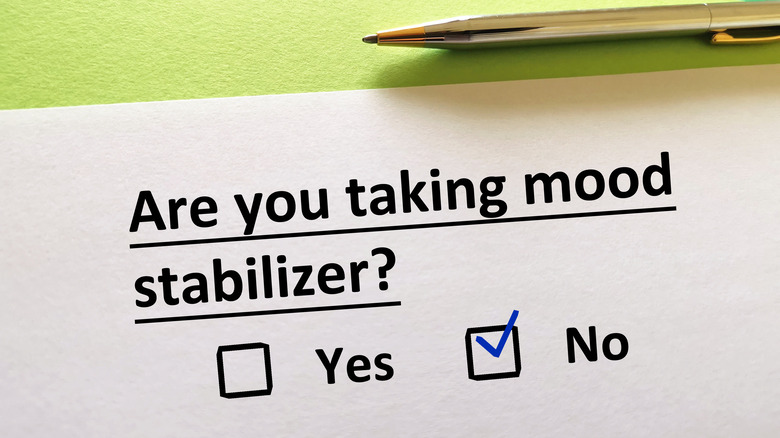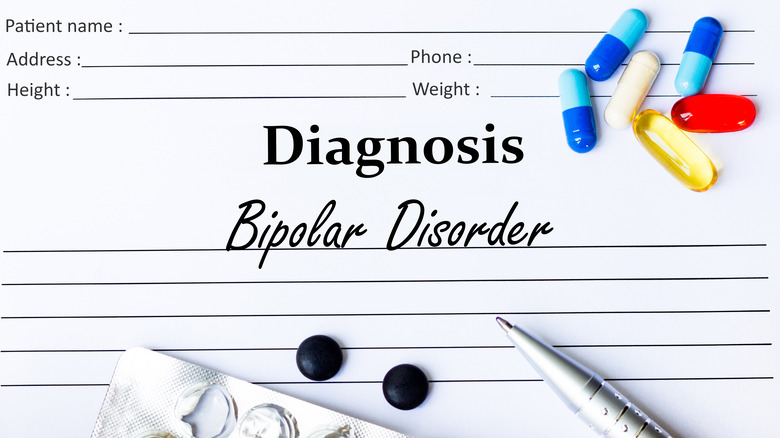Anyone diagnosed with bipolar disorder, no matter the type, understands how emotionally taxing it can be to live with the condition. As explained by the U.K.’s National Health Service (NHS), individuals with bipolar disorder can experience a wide range of emotions, from intense euphoric highs to equally intense depressive lows. These fluctuations of moods can be overwhelming, so knowing the available treatment options may help someone who is struggling with bipolar disorder.
One of the most common treatment options for bipolar disorder is the use of prescription medication, according to the Mayo Clinic. Some medication options include mood stabilizers, antipsychotics, antidepressants, and antianxiety medications. The National Alliance on Mental Illness (NAMI) reports that one common mood stabilizer approved by the Food and Drug Administration (FDA) to treat bipolar disorder is lithium.
Although sometimes useful in relieving the symptoms of bipolar disorder, taking medication regularly can be challenging for some patients. A 2024 review published in Psychological Medicine explains that approximately 40% of individuals diagnosed with bipolar disorder do not consistently take their medications. The researchers discovered several barriers preventing people from taking their medications, including the fear of side effects, the inability to remember to take their medication regularly, or social influences such as a lack of social support.
According to the Treatment Advocacy Center, someone with bipolar disorder may also refuse to take their medication if they insist they are not sick. They further explain that this lack of awareness about their condition is called anosognosia.
The risks of stopping medication for someone with bipolar disorder

There can be significant consequences if someone with bipolar disorder refuses to take their medication. They might experience an increase in risk-taking behaviors, psychosis, social isolation, and even suicide, says clinical supervisor Randy Bressler (per Psycom). Bressler emphasizes the importance of a support system for people with bipolar disorder.
According to Healthline, untreated bipolar disorder can contribute to a host of problems in someone’s life. Their ability to find and retain a job, as well as their job performance, can be negatively affected. Individuals with untreated bipolar disorder may also experience greater dissatisfaction in their relationships. Adequate treatment, such as medications and therapies, may lessen the severity of symptoms and improve the quality of life of someone with bipolar disorder.
A 2024 article published in Therapeutic Advances in Psychopharmacology reported that abrupt discontinuation of lithium, in particular, can increase the risk of relapse of bipolar symptoms. The researchers explain that long-term treatment with medication is associated with a lower suicide death rate for people with bipolar disorder, so compliance with medication can also save lives. If you notice any side effects or have any other concerns about your medication, NAMI recommends discussing them with your doctor.
If you or someone you know needs help with mental health, please contact the Crisis Text Line by texting HOME to 741741, call the National Alliance on Mental Illness helpline at 1-800-950-NAMI (6264), or visit the National Institute of Mental Health website.




